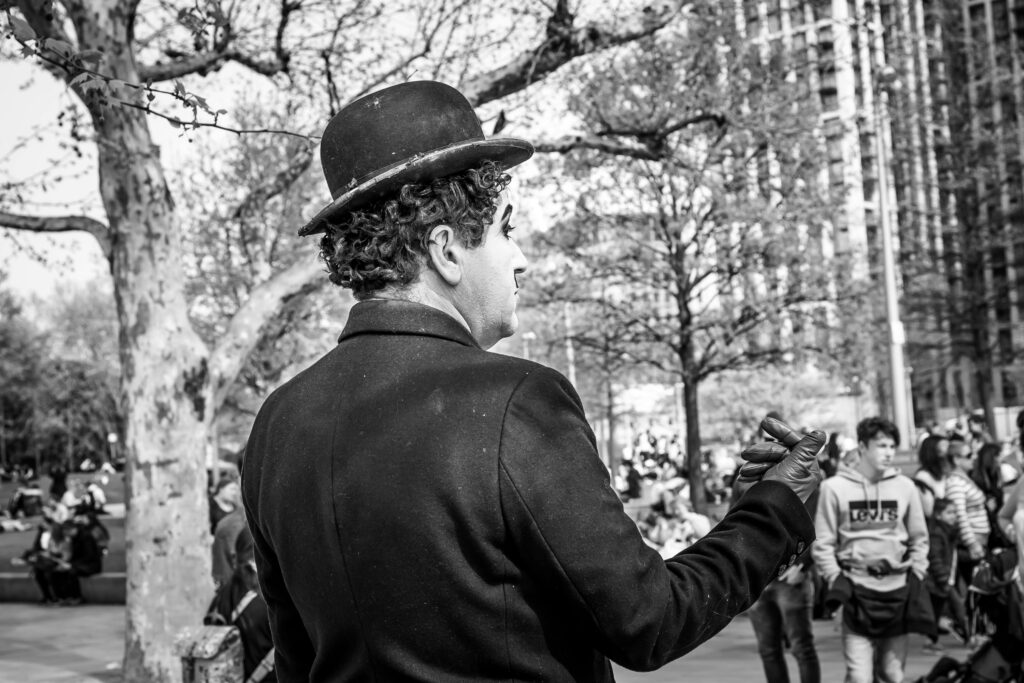SHORT ANSWER QUESTIONS
Question 1: What is the full name of Charlie Chaplin?
Ans: The full name of Charlie Chaplin is Sir Charles Spencer Chaplin, the legendary actor, filmmaker, and comedian.
Question 2: What was Charlie Chaplin’s profession?
Ans: Charlie Chaplin was a renowned English comic actor, filmmaker, and composer, best known for his silent films.
Question 3: When was Charlie Chaplin most famous?
Ans: Chaplin gained worldwide fame in the silent film era, especially in the United States.
Question 4: Who influenced Charlie Chaplin’s career?
Ans: The French silent film star Max Linder greatly influenced Chaplin, who later dedicated one of his films to him.
Question 5: What was the duration of Chaplin’s career?
Ans: Chaplin’s remarkable career spanned over 75 years, from his early childhood performances to his final days.
Question 6: What does Chaplin’s autobiography reveal?
Ans: The excerpt “Debut on Stage” from Chaplin’s autobiography details his first stage performance as a child, giving readers an intimate look at his early struggles and passion for performing.
Question 7: When and where was Charlie Chaplin born?
Ans: Charlie Chaplin was born on April 16, 1889, at 8 PM in East Lane, Walworth, London.
Question 8: Where did Charlie Chaplin’s family move?
Ans: Chaplin and his family moved to West Square, St. George’s Road, Lambeth, London.
Question 9: What were the living conditions of Chaplin’s family?
Ans: Despite financial challenges, Chaplin’s family managed to live in three well-furnished rooms, providing a stable early life.
Question 10: What is legerdemain, and how was it performed?
Ans: Legerdemain is the art of sleight of hand or magical deception. Chaplin’s elder brother, Sydney Chaplin, performed an act where he pretended to swallow a coin and then “retrieve” it from the back of Charlie’s head.
Question 11: What was Chaplin’s mother’s routine after returning from the theatre?
Ans: To ensure a peaceful morning, Chaplin’s mother always left treats on the table for her children after returning late from the theatre.
Question 12: What rule did Chaplin and his brother Sydney follow?
Ans: They were instructed to remain quiet in the morning so their mother could rest after her late-night performances.
Question 13: What did Chaplin’s mother look like?
Ans: In her youth, Chaplin’s mother was a petite, fair-skinned woman with violet-blue eyes and long light-brown hair.
Question 14: How did Chaplin’s mother dress them for Sunday outings?
Ans: She took great pride in dressing her sons elegantly—Sydney in an Eton suit and Charlie in blue velvet attire with matching gloves.
Question 15: What did Chaplin learn about his mother’s beauty in later years?
Ans: Chaplin later realized that his mother was a stunning and charming woman with captivating elegance.

Question 16: How was London during Chaplin’s childhood?
Ans: London was quiet and composed, with horse-drawn tram cars moving at a leisurely pace.
Question 17: How did Chaplin describe Westminster Bridge Road?
Ans: Westminster Bridge Road had a lively atmosphere with shops, restaurants, and music halls, making it an enjoyable place.
Question 18: Where was the fruit shop, and how was it arranged?
Ans: The fruit shop, located at the corner facing Westminster Bridge Road, had a vibrant display of neatly arranged fruits like oranges, apples, pears, and bananas.
Question 19: What were Chaplin’s memories of Lambeth?
Ans: His memories included spring mornings, horse-bus rides with his mother, and colorful flower markets, all of which created a rich, nostalgic atmosphere.
Question 20: What did the flower girls at Westminster Bridge do?
Ans: The rubicund flower girls crafted boutonnieres with fresh roses, ferns, and tinsel, filling Chaplin with a sense of nostalgia.
Question 21: What objects in Chaplin’s home influenced his senses?
Ans: His home had a life-size painting of Nell Gwyn, long-necked decanters, and a round music box that fascinated him.
Question 22: What were Chaplin’s epic childhood moments?
Ans: Visiting the Royal Aquarium, watching “She, the Live Head,” participating in lucky dips, and attending the Canterbury Music Hall with his mother were among his most memorable experiences.
Question 23: How did Chaplin describe his father?
Ans: Chaplin barely knew his father, describing him as a quiet, brooding vaudevillian with dark eyes.
Question 24: Why was alcohol consumption common among theatre performers?
Ans: In those days, alcohol was sold in all theatres, and performers were expected to drink with the audience after their acts.
Question 25: What led to Chaplin’s parents’ separation?
Ans: Chaplin’s father’s alcohol addiction was the primary reason for their separation.
LONG ANSWER QUESTIONS
Question 1: Describe Chaplin’s early life and the legerdemain incident.
Chaplin’s early life was filled with joy and hardship. He was born on April 16, 1889, in East Lane, Walworth. His family initially lived comfortably in three well-furnished rooms. However, financial struggles followed.
Legerdemain, or sleight of hand magic, played a part in his childhood. His elder brother, Sydney, performed a trick where he pretended to swallow a coin and pull it from Charlie’s head. Charlie once imitated the act, leading to a minor health scare that required a doctor.
Question 2: Describe Charlie Chaplin’s childhood memories in Lambeth.
Chaplin’s Lambeth memories were filled with joyful spring days, colorful bus tickets, flower markets, and family outings. He recalled riding a horse-bus with his mother, attempting to touch lilac trees, and watching flower girls craft boutonnieres.
Question 3: How did Chaplin make his stage debut?
Chaplin’s first stage appearance happened when his mother lost her voice due to laryngitis while performing at Aldershot Theatre. At just five years old, Chaplin was sent on stage to replace her.
His natural charm and innocence won over the audience. When people threw money on the stage, Chaplin hilariously paused his act to collect it, unintentionally making them laugh even more. The stage manager attempted to help, but Charlie misunderstood and thought his money was being taken away, causing even greater amusement.
That moment marked the beginning of his legendary career and the end of his mother’s stage career.

